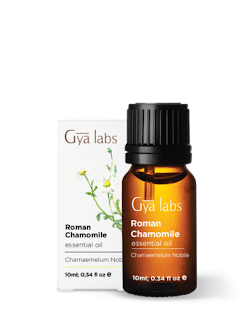Vetiver Essential Oil is extracted from the aromatic roots of the botanical Vetiveria zizanioides (Linn) Nash.
Vetiver Essential Oil is also known as the "Oil of Tranquility" and "The Fragrance of the Soil" due to its grounding, sensual, and deeply calming scent.
Vetiver Essential Oil, when used in aromatherapy, can help with anxiety, insomnia, fatigue, depression, and the inability to concentrate or remember.
Vetiver Essential Oil, when used medicinally, acts as a natural anti-oxidant, promoting relief from various types of inflammation. Its tonic properties are said to have regenerative effects by boosting and maintaining immunity. Its antiseptic properties kill and prevent the growth of pathogenic bacteria.
Vetiver Essential Oil's tonic properties improve circulation, boost metabolism and digestion, relieve muscular aches, and soothe joint pain when used in massages.
VETIVER OIL'S USAGE HISTORY
Vetiver Essential Oil, derived from the aromatic roots of the botanical Vetiveria zizanioides (Linn) Nash., has become known in India and Sri Lanka as the “Oil of Tranquility” and “The Fragrance of the Soil” due to its grounding, sensual, and deeply calming scent. Vetiver is a member of the Grass family and is also known as Vetivert and Khus.
Since antiquity, almost the entire Vetiver plant has been used for a variety of purposes, including the production of perfumes, soaps, and cosmetics.
Vetiver, when used in foods and drinks, produced a refreshing beverage and sorbet flavoring. Vetiver roots were traditionally used in the production of homemade evaporative coolers, which functioned as air conditioners prior to the invention of electricity in tropical countries. The roots were ideal for making grass mats due to their coolness. The dried roots were woven together with coir rope to make curtains, which were then soaked in water before being hung in windows and doorways.
As hot air passed through the cold, wet roots, the Vetiver curtains not only provided cool air but also exuded a comforting, alluring, earthy fragrance and functioned as insect repellants. Likewise, Vetiver grass mats were draped over cars to keep them cool. Vetiver grass was thatched together to make awnings, roofs, rugs, baskets, blinds, animal fodder and bedding, and other household necessities in India and Africa. The roots were placed in Muslin sachets and kept inside clay water pots to maintain cool temperatures for drinking water and to benefit from Vetiver's health-enhancing properties.
It has been normal practice to utilize Vetiver Oil in perfumes since the Middle Ages. Its rich, woody scent has made it popular in men's colognes, and it is now found in many of them. Vetiver and the essential oil derived from its roots have been utilized for their calming, protecting, and energizing effects since the 12th century.
When it comes to Ayurvedic medicine, Vetiver Oil was revered for both its invigorating perfume and its healing properties.
Many health issues were treated with this remedy, such as psychosomatic temperamental and other joint ailments, muscle aches and pain in the brain as well as heatstroke and other heat-related illnesses.
Vetiver Essential Oil's refreshing characteristics made it perfect for reducing high body temperatures during times of high ambient temperatures. Vetiver Oil became an essential ingredient of Ayurvedic massages because of its extra ability to boost the nervous system by sedating the senses and so reduce stress and physical tiredness associated with low immunity. Brides were traditionally given a cleansing massage with Vetiver Oil before their marriages took place.
If this Blog Finds Helpful. Must Share and Comment Your Views., Thank you!!
Also Read About: Lavender Essential oil


Comments
Post a Comment